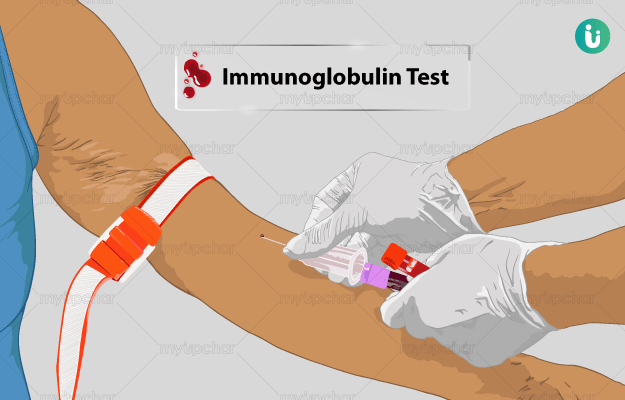What is an Immunoglobulin (Ig A, G, M) test?
Immunoglobulins are proteins that our body produces in response to the presence of antigens - substances that our body considers harmful or foreign. These can be toxins, bacteria, viruses or cancer cells.
Specific immunoglobulins are made against specific antigens - this means an antibody will only attack the specific antigen it is made against. For example, tuberculosis immunoglobulins will attack tuberculosis bacteria only and would not work against any other bacteria.
Our immune system also has a memory. Once it has been exposed to a particular antigen, it remembers the causative antigen, so the next time the same antigen enters the body, antibodies can be produced quickly. However, sometimes the body mistakenly produces antibodies against healthy organs and tissue, leading to autoimmune diseases. Such antibodies are called autoantibodies.
An immunoglobulin test or the total immunoglobulin test determines the level of antibodies or immunoglobulins - IgA, IgG and IgM - in your blood to check for current or past infections, diseases or autoimmune conditions.
The three types of immunoglobulins that can be detected with this test are as follows:
IgM: It is the largest antibody, and is the first to be produced in response to an antigen. IgM contributes about 5% to 10% of the total antibodies. It is found in both blood and lymph.
IgG: IgG is the smallest antibody but is the most common. Contributing to about 75% to 80% of the total antibodies, these antibodies are essential in fighting against bacterial or viral infections. IgG also stays for the longest in the bloodstream after infection and makes the memory of the immune system. It is these antibodies that help our body react quickly in cases of re-infection.
Additionally, IgG is the only antibody that passes through the placenta, and hence, a mother’s IgG antibodies can protect the foetus during pregnancy.
IgA: IgA contributes to about 15% of the total antibodies in the body. It is found in saliva, tears, sinus, lungs, breast milk and gastric fluids of the stomach and intestine. An infant does not have IgA in the blood until six months of age, till then he/she will get IgA antibodies from the mother’s milk only.






























